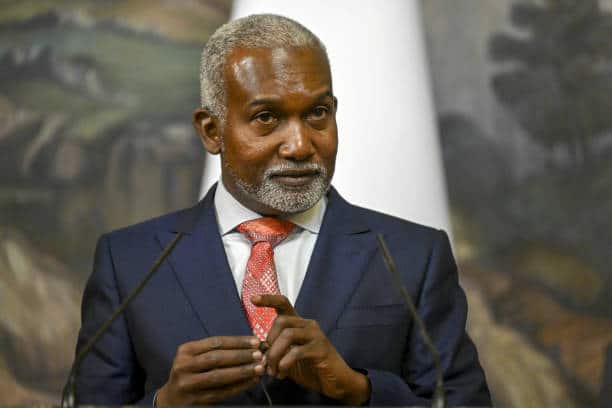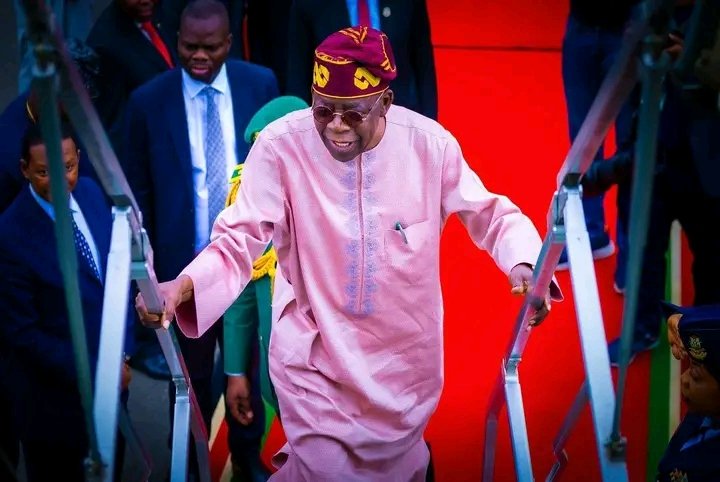
Nigerian Foreign Minister Yusuf Maitama Tuggar : Getty Images
LAGOS, Nigeria — Nigeria has refused a proposal by U.S. President Donald Trump to accept Venezuelan deportees, many of whom are being removed from American prisons under a controversial third-country relocation strategy.
The move highlights growing BRICS deportation tensions as Nigeria aligns with emerging economies pushing back against unilateral U.S. policies.
Nigerian Foreign Policy Clashes With Trump Deportation Agenda
Venezuela Deportation Request Met With Resistance From Nigerian Officials
Speaking in a televised interview with Channels Television, Nigerian Foreign Minister Yusuf Tuggar confirmed that the U.S. is pressuring several African nations to accept deportees who are neither citizens nor asylum applicants.
“The U.S. is mounting considerable pressure on African countries to accept Venezuelans to be deported from the U.S., some straight out of prisons,” Tuggar said. “It will be difficult for Nigeria to accept Venezuelan prisoners.”
According to the Wall Street Journal, President Trump met with leaders from Senegal, Liberia, Mauritania, Gabon, and Guinea-Bissau at the White House, where he emphasized the need for global cooperation on accepting deportees. The president of Guinea-Bissau later clarified that while deportation was discussed, “he didn’t ask us to take immigrants back.”
Trump’s Deportation Agenda Targets Third-Country Destinations in Africa
African Nations Urged to Absorb Inmates Without Legal Ties
President Trump’s immigration strategy includes rerouting individuals to countries with no prior connection to them. In past months, hundreds of Venezuelans were sent to Panama and El Salvador, many of whom had their asylum claims still pending. Some deportations proceeded despite court orders to halt them.
The administration reportedly invoked an obscure 18th-century law to justify the deportation of foreign nationals accused of gang affiliation. Deportations to conflict-prone regions like South Sudan have also drawn scrutiny for potentially violating international human rights standards.
Nigerian BRICS Position Cited in Deportation Rejection
Tariff Threats Seen as Tied to Nigeria’s Diplomatic Stance
Tuggar suggested that the U.S. pressure on deportations may be linked to Nigeria’s involvement in the BRICS alliance. He implied that recent tariff threats from Washington could be a retaliatory response to Nigeria’s resistance.
“There seems to be a connection between tariff threats and our BRICS alignment,” he said, hinting at a deeper diplomatic standoff beyond immigration policy.
Analysts agree that the deportation demand is not solely about migration, but part of a broader power struggle over global influence. A senior fellow at Chatham House noted that economic coercion is increasingly being used to compel compliance with U.S. foreign policy priorities.
Legal Experts Question Third-Country Deportation Legality
Human Rights Risks for Venezuelans in African Destinations
Legal experts and rights advocates argue that sending prisoners to countries with no legal ties and poor human rights records violates several international norms. A lawyer with the West African Bar Association emphasized that such deportations could contravene the UN Convention Against Torture.
“Nigeria should not be a dumping ground for prisoners with no legal link to us,” the lawyer said.
Humanitarian groups have also raised alarms that deported Venezuelans could face torture, arbitrary detention, or death in certain receiving countries, including war-torn regions in Africa.
With Nigeria’s rejection now clear, Trump’s administration may escalate pressure on other nations or expand third-country deportation deals—raising the stakes for international law and diplomacy.

